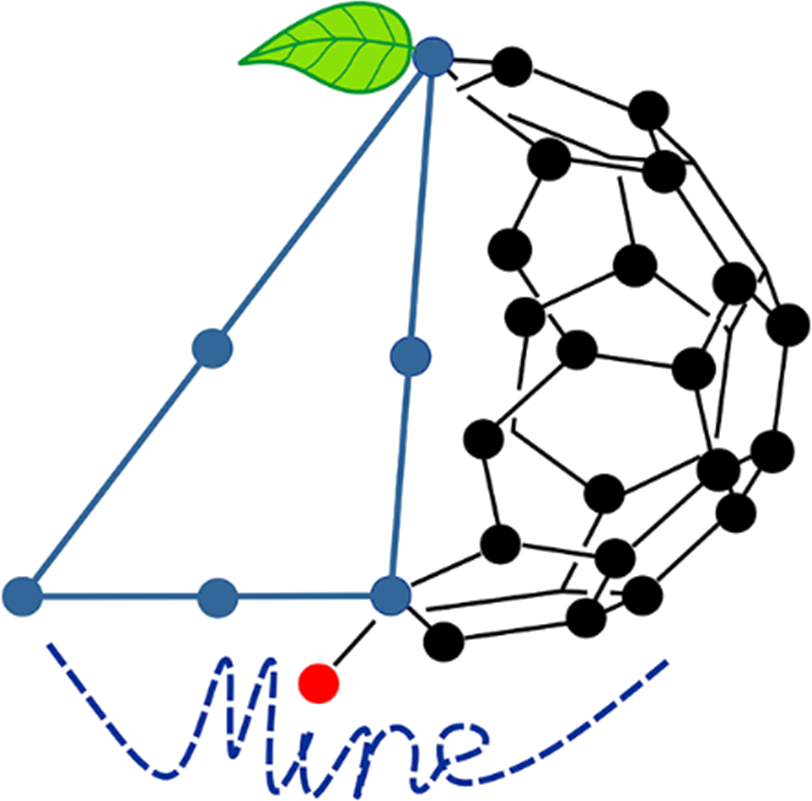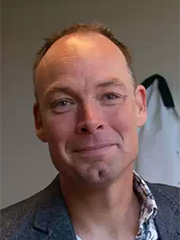 |
Prof. Martin Bennink lecture on Monday, June 19 entitled: "Foundations of nanotechnology" Prof. Martin Bennink (1973) has studied Applied Physics and done his PhD in the field of single molecule biophysics at the University of Twente. After this he has worked for a number of years as a research program coordinator at the MESA+ Institute for Nanotechnology, and later appointed as an assistant professor in Nanobiophysics, at the University of Twente. |
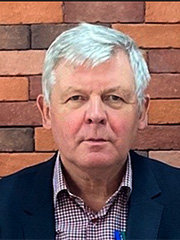 |
Prof. Xavier Coqueret lecture on Thursday, June 22 entitled: "Nanocomposites" Prof. Xavier Coqueret received his PhD in organic chemistry from the University of Reims, France, and joined in 1984 the CNRS (National Centre for Scientific Research) as a junior scientist to study the photochemistry of polymer-borne chromophores. Being appointed as a Professor of Polymer Chemistry at the Ecole Nationale Supérieure de Chimie de Lille (1991-2005), he extended the activities of his group to the modification of polymers by cross-linking or grafting using high energy radiation (electron beam), and to radiation-initiated polymerization. In 2005, Xavier Coqueret joined the University of Reims to initiate a research activity on Polymer chemistry, with emphasis on radiation processing, high performance composites and bio-based materials. From 2008 to 2018, he has headed the Reims Institute of Molecular Chemistry. Tight links have been established with Polish universities and research centers since 1993, resulting in long-term research collaborations, particularly with Maria Curie Sklodowska University (UMCS) in Lublin, with 3 PhD theses defended and more than 10 MSc projects, Doctor Honoris Causa granted in 2012; collaborations with the Institute of Nuclear Chemistry and Technology, Warsaw, and the Institute of Applied Radiation Chemistry, TU Lodz). Xavier Coqueret is the author of more than 150 research articles and 20 book chapters, and the holder of 22 priority patents. |
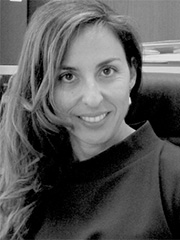 |
Prof. Clelia Dispenza lecture on Wednesday, June 21 entitled: "Nanomaterials for biological and medical applications" Prof. Clelia Dispenza graduated in Chemical Engineering in 1993 from the University of Palermo (Italy). In 1998, she obtained her PhD in Chemical Technologies and Advanced Materials at the same University, discussing a thesis entitled 'Functionalised acrylic rubber and epoxy resin blends as carbon fibre composite matrices for aerospace applications'. The project was carried out in collaboration with ICI (Imperial Chemical Industries, Wilton, UK). At the end of 1997, she moved to the UK to work for ICI as Polymer Chemistry Manager in the Global R&D Team of ICI Surfactants, to develop new polymeric surfactants for applications in personal care, agrochemicals and lubricants. In 2000, she returned to the University of Palermo as a research assistant. In 2002 she was appointed Assistant Professor of Chemistry and in 2015 Associate Professor of Chemistry. In 2010 she became Head of the Laboratory of Bionanomaterials and Composites in the Department of Engineering. Since 2022, she has been a full professor of Chemistry. She teaches Chemistry to first-year Chemical Engineering students, Bionanomaterials to Master of Engineering and Biotechnology students, and Green Chemistry and Food Chemistry to Master of Engineering students. |
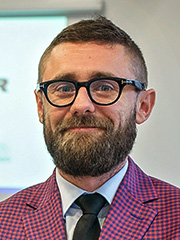 |
Dr Michał Kużdżał lecture on Thursday, June 22 entitled: "Nano-resolution in IR imaging and how it can be employed in nanomaterial studies" Dr Michał Kużdżał (1981) has studied Biotechnology at Wrocław University and completed his PhD in the field of biophysics at Wrocław Medical University in 2010. The thesis focused on investigations of interactions of polyphenolic compounds with biological and model membranes with use of fluorescent and paramagnetic resonance spectroscopies. This scientific background was adequate to start working in Labsoft (2018) as a specialist on IR imaging. The NanoIR3 (Bruker) is a unique instrument combining, in a single platform, patented near field IR microscopy (AFM-IR) capable of providing nanoscale infrared spectroscopy and chemical imaging, with 10nm spatial resolution, with an integrated atomic force microscope. Such device can be easily employed in material and especially nanomaterial, studies. |
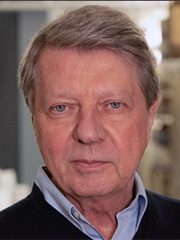 |
Prof. Krzysztof Matyjaszewski lecture on Thursday, June 22 entitled: "(Bio)Nanomaterial Engineering" Krzysztof Matyjaszewski is J.C. Warner University Professor of Natural Sciences and director of Center for Macromolecular Engineering at Carnegie Mellon University. He prepares well-defined advanced materials for biomedical, environmental and energy-related applications. In 1994 he discovered Cu-mediated atom transfer radical polymerization, commercialized in 2004 in US, Japan and Europe. He has co-authored >1,200 publications, (>180,000 citations, h-index 205) and 68 US patents. He is a member of National Academy of Engineering, National Academy of Sciences, National Academy of Inventors as well as Polish, Hungarian, Georgian, European, and Australian Academies of Sciences. He received 2023 NAS Award in Chemical Sciences, 2017 Benjamin Franklin Medal in Chemistry, 2015 Dreyfus Prize in Chemical Sciences, 2011 Wolf Prize in Chemistry, 2009 Presidential Green Chemistry Challenge Award, 14 awards from the American Chemical Society, 2004 Prize of Foundation for Polish Science, and eleven doctorate honoris causa degrees. |
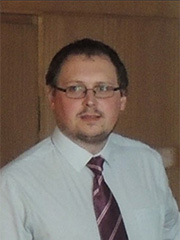 |
Dr. Jaroslav Mosnáček lecture on Monday, June 19 entitled: "Macromolecular engineering" Dr. Jaroslav Mosnacek was graduated in 1998 in Organic chemistry at Comenius University in Bratislava and obtained his PhD. in 05/2002 and DSc. in 09/2016 in Macromolecular chemistry at Polymer Institute SAS. After defence of his PhD. thesis, he spent totally almost 4 years as a postdoc in Italy (prof. Ciardelli), Poland (prof. Penczek), Saudi Arabia (prof. Basfar) and USA (prof. Matyjaszewski). Since 06/2015 he is a head of Department of Synthesis and Characterization of Polymers and since 01/2019 a director of the Polymer Institute. His research interest is focused on the synthesis of well-defined vinyl polymers and surface modifications using living/controlled (photo)polymerizations as well as synthesis of functional polymers from renewable monomers. During last ten years he was a principal investigator of 5 national research projects and 2 international projects. He is (co)author of 116 SCI publications cited more than 2000 times with h-index of 28, 3 book chapters, 1 university textbook and 3 patents. |
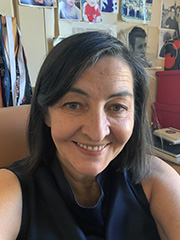 |
Prof. Eulália Pereira lecture on Tuesday, June 20 entitled: "Synthesis of nanoparticles" Eulália Pereira is an Associate Professor at Department of Chemistry and Biochemistry, Faculty of Sciences, University of Porto, Portugal. She obtained her PhD in Chemistry, in the University of Porto, in 1996, in coordination chemistry. She currently works in Nanochemistry and Nanotechnology, in particular in synthesis and characterization of metal nanoparticles for applications in bionanotechnology. Her current science interests are i) development of metal nanoparticle based biosensors; ii) development of nanostructured plasmonic substrates for ultrasensitive SERS. |
 |
Dr. Eng. Anna Stępień lecture on Tuesday, June 20 entitled: "Review of solid oxide fuel cell materials" Graduate of the Faculty of Energy and Fuels at the AGH University of Science and Technology, defended with distinction her doctoral thesis in the field of material engineering for modern energy technologies. Co-author of over thirty scientific publications in field of new materials for fuel cells, lithium batteries, oxygen storage and separation technologies. Worked in research centres such as AGH University of Science and Technology, University of Technology Beijing (China) and Shibaura Institute of Technology (Japan), where she was a manager and contractor in several research projects. She is a laureate of many awards and distinctions, incl. scholarship of the Ministry of Science and Higher Education for Outstanding Young Scientists, scholarship of the Foundation for Polish Science and the Nernst Prize of the Institute of Energy and Warsaw University of Technology. For over two years, she has been developing her career in the industrial sector, where within 3D-nano and HogerBox Ltd. companies she conducts projects in the field of implementation of advanced technologies, in particular regarding material engineering and the design of specialized laboratory devices. |
Lecturers

